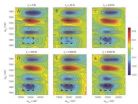(Press-News.org) Surgical residents who received anonymous feedback from their peers through a social networking site on their robotic surgery skills improved more than those who did not receive any peer feedback on their procedures, UCLA researchers found.
The study is the first to examine the use of social networking to facilitate peer review of surgical procedure videos, said senior author Dr. Jim Hu, UCLA's Henry E. Singleton Professor of Urology and director of robotic and minimally invasive surgery in the urology department at the David Geffen School of Medicine at UCLA.
The study included 41 urology and gynecology residents from UCLA and the University of Michigan, who used a robotic surgery simulator to sew and tie two tubes together. The residents were randomized into one of two arms – an intervention arm in which the residents videotaped their efforts and posted the video on a Google+ group forum for anonymous review and comment by their peers in the same study arm, and a control arm in which study participants did not videotape or post their work for review.
The residents performed the same simulated robotic procedure three times. The study found that the residents in the intervention arm improved their technique in subsequent attempts, experiencing shorter completion times and earning better scores from the simulator for technical efficiency, greater accuracy and economy of motion.
"We have demonstrated that social networking can be a viable forum for coaching, both for residents honing their craft as well as practicing surgeons," Hu said. "Technique matters, regardless of what type of surgery you're doing. Surgeons who invest time in reviewing their techniques on video and seek the feedback and coaching of others ultimately will do better in terms of performance."
The study appears in the early online edition of the peer-reviewed journal Annals of Surgery.
Hu said online peer review of demonstrated technique may one day become a paradigm for giving surgeons the privileges to operate at some medical institutions.
Hu said that because this platform is anonymous and accessible without time restraints or requiring a coach to be in the operating room during an procedure, it can greatly improve the quality of surgery among trainees, young surgeons who just finished training and more experienced surgeons seeking to refine their technique or adopt new technologies with challenging learning curves, such as robotic surgery.
After viewing the video, posted anonymously on the Google+ group forum, the residents in the intervention arm, also anonymously, would post comments on the performance and offer tips for improvement, Hu said. Comments included such suggestions as "be a little easier on the tissue" and "zoom in with the camera for better visualization."
Hu said certain medical specialties can be slow to adopt new technologies, so this would provide an "egoless" opportunity to improve technique. Additionally, more experienced surgeons often don't have time to coach younger surgeons, while older, more proficient surgeons can be reluctant to seek help from junior surgeons.
"Surgery can be very hierarchical," he said. "When the robot came out a decade ago in urology, the people that really embraced it were the younger doctors. Many more established surgeons were resistant, claiming it wasn't as good as open surgery," Hu said. "It can be very humbling for the more experienced surgeons to get coached by surgeons with less prestige."
However, using online peer review through social networking protects the identities of those reviewing and commenting and those whose craft is being examined. Surgeons can check their egos at the digital door, Hu said.
"Our study demonstrates the efficacy of peer feedback through social networking, a novel paradigm for technical mentorship. A benefit of using social networking as a forum is that it may serve as a vehicle for neophyte surgeons to receive mentorship from experts without the limitation of geographic distance or time constraints," the study states. "Peer feedback of the online surgical video offers anonymity for all involved. and therefore removes potential barriers due to competitive surgeon egos. It may be a paradigm for continuous technical improvement beyond residency or fellowship training, which is critical with rapidly adopted new technologies such as robotic surgery."
INFORMATION:
For more than 50 years, the urology specialists at UCLA have continued to break new ground and set the standards of care for patients suffering from urological conditions. In collaboration with research scientists, UCLA's internationally renowned physicians are pioneering new, less invasive methods of delivering care that are more effective and less costly. UCLA's is one of only a handful of urology programs in the country that offer kidney and pancreas transplantation. In July of 2013, UCLA Urology was once again ranked fourth in the nation by U.S. News & World Report, a ranking it has held for the last 15 years. For more information, visit http://urology.ucla.edu/.
Anonymous peer feedback through social networking helped residents improve their skills
Allows surgeons to check their egos at the digital door
2014-06-17
ELSE PRESS RELEASES FROM THIS DATE:
Death by prescription painkiller
2014-06-17
The number of deaths involving commonly prescribed painkillers is higher than the number of deaths by overdose from heroin and cocaine combined, according to researchers at McGill University. In a first-of-its-kind review of existing research, the McGill team has put the spotlight on a major public health problem: the dramatic increase in deaths due to prescribed painkillers, which were involved in more than 16,000 deaths in 2010 in the U.S. alone. Currently, the US and Canada rank #1 and #2 in per capita opioid consumption.
"Prescription painkiller overdoses have received ...
Former athletes finish first in race for top jobs
2014-06-17
ITHACA, N.Y. – Whether you were a quarterback or point guard, past participation in competitive team sports marks you as a winner in the competition for better jobs, according to a new Cornell University study.
"Participation in competitive youth sports 'spills over' to occupationally advantageous traits that persist across a person's life," says Kevin M. Kniffin, postdoctoral research associate at Cornell's Dyson School of Applied Economics and Management and lead researcher.
Research by Kniffen and his co-authors, published online this week in the Journal of Leadership ...
3-D breast imaging could revolutionize cancer screening
2014-06-17
Leesburg, VA, June 17, 2014—In community-based radiology practice, mammography screening with 3D digital breast tomosynthesis (DBT) yielded lower recall rates, an increased overall cancer detection rate, and an increased detection rate for invasive cancer compared with 2D digital mammography (DM).
In the largest report to date, researchers at Washington Radiology Associates, PC, with offices in Washington, DC; Virginia; and Maryland, conducted a study of more than 59,000 patients. The results were striking: an increase in the detection rate for cancer overall of 28.6% ...
Hyperthyroidism patients more likely to take extended sick leave than healthy peers
2014-06-17
Washington, DC—People who have hyperthyroidism are more likely to take sick leave for extended periods than their healthy colleagues, particularly in the first year after diagnosis, according to a new study published in the Endocrine Society's Journal of Clinical Endocrinology & Metabolism (JCEM).
Hyperthyroidism occurs when the thyroid gland is overactive. The thyroid, which is located in the front of the neck, secretes hormones that regulate how the body uses energy, consumes oxygen and produces heat.
The most common cause of hyperthyroidism is Graves' disease, ...
Pitt psychology researchers explore how engineers create
2014-06-17
PITTSBURGH—Simply put, engineers make things. But is finding that "new" invention a massive mental leap from point A to point B, or are there scores of unnoticed intermediate steps in between?
The University of Pittsburgh's Joel Chan and Christian Schunn say that not enough has been done to understand how engineers create. Understanding the process, they say, may provide a road map for speeding up innovation.
Chan, a graduate student in psychology in Pitt's Kenneth P. Dietrich School of Arts and Sciences, and his mentor Schunn, a professor of psychology as well as a ...
Barriers to obtaining gene expression profiling test heightened perceived value
2014-06-17
Barriers to obtaining gene expression profiling test heightened perceived value among patients, new study says
TORONTO, June 17, 2014—Barriers to obtaining gene expression profiling tests heightened their perceived importance among patients with early breast cancer who were deciding whether to have chemotherapy, a new study says.
Gene expression profiling tests, such as Oncotype Dx, analyze the patterns of 21 different genes within cancer cells to help predict how likely it is that a women's cancer will recur within 10 years after initial treatment and how beneficial ...
TRMM eyes rainfall in dissipating former Hurricane Cristina
2014-06-17
VIDEO:
On June 14, NASA's TRMM satellite found rain falling at a rate of almost 97 mm (about 3.8 inches) per hour in the northwestern side of Cristina's eye wall where...
Click here for more information.
NASA and the Japan Aerospace Exploration Agency's Tropical Rainfall Measuring Mission or TRMM satellite passed over a dissipating former Hurricane Cristina and found it still contained heavy rain as it rapidly weakened.
Hurricane Cristina had sustained winds of over 130 ...
Tropical depression Hagibis gets a second chance
2014-06-17
Tropical Depression Hagibis appeared out for the count when it made landfall along southeastern China on June 16, but moved back into the South China Sea where it regenerated and sped northeast through the East China Sea. The next day, the TRMM satellite noticed power had come back to Hagibis in the form of some moderate rainfall in the depression's northeastern quadrant.
On June 17 at 10:30 UTC (6:30 a.m. EDT) the Tropical Rainfall Measuring Mission or TRMM satellite passed over the regenerated Hagibis and the Precipitation Radar instrument gathered data on the storm's ...
Sleep education program spurs preschoolers to snooze 30 minutes longer at night
2014-06-17
Ann Arbor, Mich. — Taking part in an educational sleep program resulted in a 30-minute average increase in sleep duration at a one-month follow-up for preschoolers, according to a new study from the University of Michigan.
In the study, published in the journal SLEEP, families in two Head Start programs participated in the Sweet Dreamzzz Early Childhood Sleep Education Program™. The Detroit-area nonprofit organization, Sweet Dreamzzz, Inc. developed the program and offers it for free when funding allows. Head Start programs aim to give preschool opportunities to low-income ...
Dynamic spectroscopy duo
2014-06-17
From allowing our eyes to see, to enabling green plants to harvest energy from the sun, photochemical reactions – reactions triggered by light – are both ubiquitous and critical to nature. Photochemical reactions also play essential roles in high technology, from the creation of new nanomaterials to the development of more efficient solar energy systems. Using photochemical reactions to our best advantage requires a deep understanding of the interplay between the electrons and atomic nuclei within a molecular system after that system has been excited by light.
A major ...
LAST 30 PRESS RELEASES:
ACC announces inaugural fellow for the Thad and Gerry Waites Rural Cardiovascular Research Fellowship
University of Oklahoma researchers develop durable hybrid materials for faster radiation detection
Medicaid disenrollment spikes at age 19, study finds
Turning agricultural waste into advanced materials: Review highlights how torrefaction could power a sustainable carbon future
New study warns emerging pollutants in livestock and aquaculture waste may threaten ecosystems and public health
Integrated rice–aquatic farming systems may hold the key to smarter nitrogen use and lower agricultural emissions
Hope for global banana farming in genetic discovery
Mirror image pheromones help beetles swipe right
Prenatal lead exposure related to worse cognitive function in adults
Research alert: Understanding substance use across the full spectrum of sexual identity
Pekingese, Shih Tzu and Staffordshire Bull Terrier among twelve dog breeds at risk of serious breathing condition
Selected dog breeds with most breathing trouble identified in new study
Interplay of class and gender may influence social judgments differently between cultures
Pollen counts can be predicted by machine learning models using meteorological data with more than 80% accuracy even a week ahead, for both grass and birch tree pollen, which could be key in effective
Rewriting our understanding of early hominin dispersal to Eurasia
Rising simultaneous wildfire risk compromises international firefighting efforts
Honey bee "dance floors" can be accurately located with a new method, mapping where in the hive forager bees perform waggle dances to signal the location of pollen and nectar for their nestmates
Exercise and nutritional drinks can reduce the need for care in dementia
Michelson Medical Research Foundation awards $750,000 to rising immunology leaders
SfN announces Early Career Policy Ambassadors Class of 2026
Spiritual practices strongly associated with reduced risk for hazardous alcohol and drug use
Novel vaccine protects against C. diff disease and recurrence
An “electrical” circadian clock balances growth between shoots and roots
Largest study of rare skin cancer in Mexican patients shows its more complex than previously thought
Colonists dredged away Sydney’s natural oyster reefs. Now science knows how best to restore them.
Joint and independent associations of gestational diabetes and depression with childhood obesity
Spirituality and harmful or hazardous alcohol and other drug use
New plastic material could solve energy storage challenge, researchers report
Mapping protein production in brain cells yields new insights for brain disease
Exposing a hidden anchor for HIV replication
[Press-News.org] Anonymous peer feedback through social networking helped residents improve their skillsAllows surgeons to check their egos at the digital door




